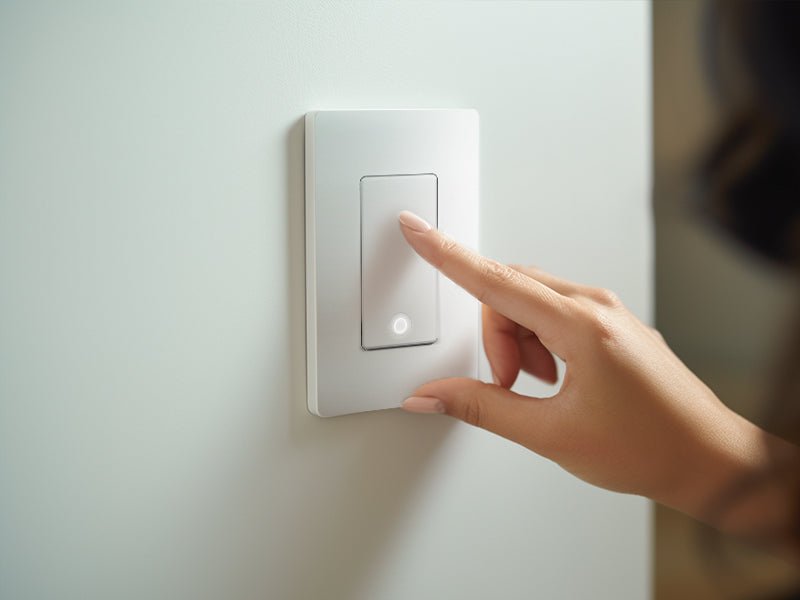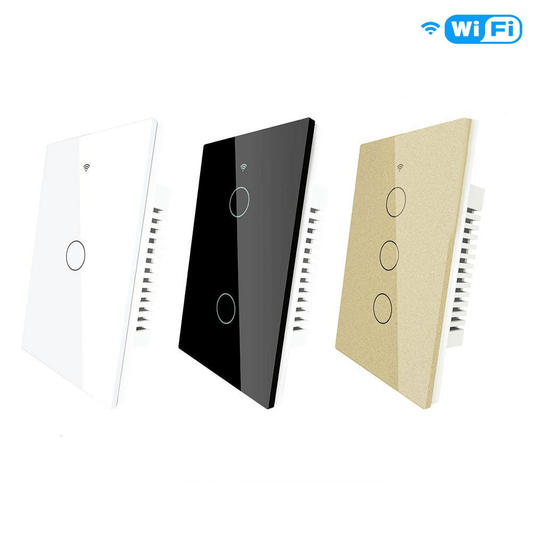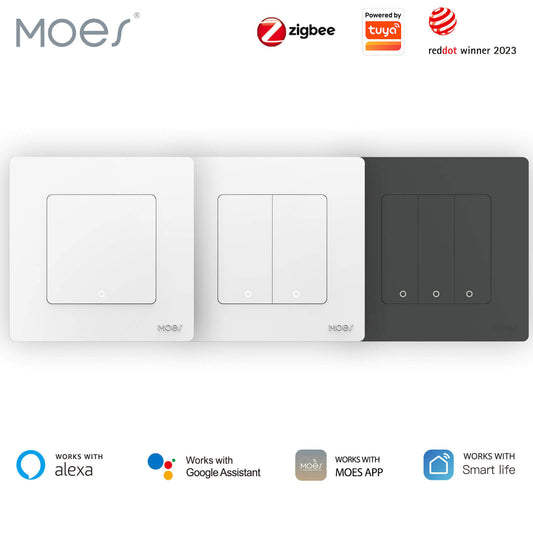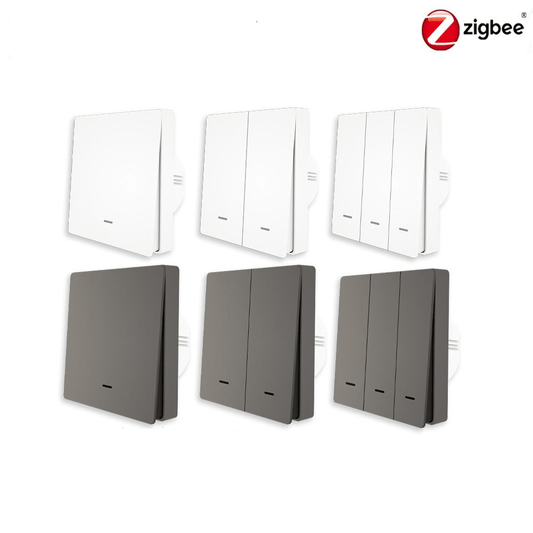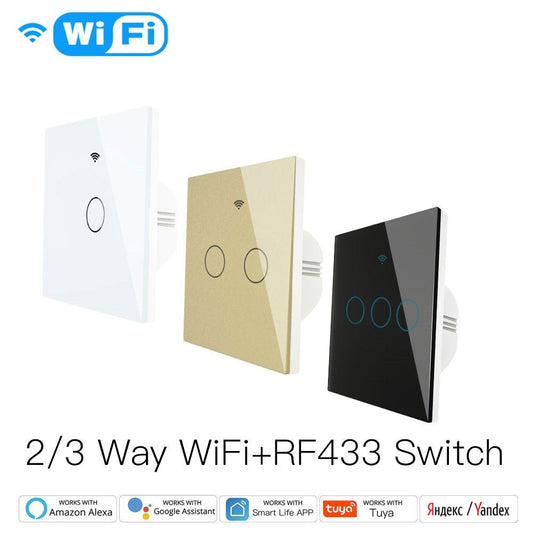Energy efficiency has become increasingly important in light of environmental concerns and rising energy costs. To effectively reduce our carbon footprint and save money, it is crucial to explore innovative ways to achieve sustainability. Smart switches, although seemingly inconspicuous, have emerged as an essential technology for homeowners dedicated to energy conservation. Understanding the significance of smart switches in establishing an energy-efficient household can lead to substantial long-term savings.
Understanding Smart Switches
Smart switches are a modern version of regular light switches. They replace traditional switches and provide wireless connectivity, allowing for remote control and advanced scheduling of home lighting and appliances. They can be integrated into your existing smart home setup and managed through smartphone apps, voice commands, or from a remote location.
Smart light switches have Wi-Fi capabilities and offer features like remote control, support for three-way switch setups, and built-in motion sensors. They can also be linked to smart outlets and controlled through voice commands with a smart speaker. Despite a slightly more involved installation process, the benefits of smart light switches outweigh the effort. With basic tools and some knowledge, you can easily upgrade your light switches and unlock new possibilities for home automation.

Energy-Efficient Lighting Control
One of the most significant advantages of smart switches lies in their ability to control lighting efficiently. Traditional switches provide a simple on/off functionality, but smart switches take it a step further. Here's how they contribute to energy efficiency:
Dimming Capabilities
Many smart switches offer dimming features, allowing you to adjust the brightness of your lights. By dimming your lights to an appropriate level, you can significantly reduce energy consumption while maintaining the desired ambiance. This is particularly useful for areas where full brightness isn't necessary, such as the living room during movie nights or the bedroom in the evening.
Scheduling and Automation
Smart switches enable you to create schedules for your lighting. You can program them to turn lights on or off at specific times, automatically adjusting to your daily routines. For instance, you can set your lights to turn off during the day when nobody is home or to create the illusion of an occupied house when you're away on vacation. These automated routines help eliminate energy waste from lights left on unnecessarily.
Remote Control
With remote control through smartphone apps or voice assistants, you can easily turn off lights you may have accidentally left on when you're not at home. This feature can be a significant energy-saver and also provides peace of mind.
Reducing Phantom Energy Consumption
Phantom energy, also known as standby power or vampire power, refers to the energy consumed by devices that are plugged in but not actively in use. It's a significant contributor to your energy bill and carbon footprint. Smart switches can help mitigate phantom energy consumption in various ways:
Cutting Power to Idle Devices
Smart switches enable you to cut power to devices when they're not in use. For example, you can plug your entertainment center into a smart switch and turn it off completely when you're done watching TV or gaming. This prevents these devices from drawing power while in standby mode.
Schedule-Based Control
Create schedules to power off appliances and chargers when they're typically not needed. For instance, you can schedule your home office printer to turn off at night and on weekends when you're not working.

Integration with Smart Home Ecosystems
Smart switches are incredibly versatile and can seamlessly integrate into your existing smart home ecosystem. This integration allows for more holistic energy management:
Smart switches can work in conjunction with smart thermostats to create energy-efficient scenarios. For instance, when your thermostat detects that no one is home, it can communicate with the smart switches to ensure all lights and non-essential appliances are turned off.
The ability to control your smart switches using voice commands through platforms like Amazon Alexa or Google Assistant can enhance your energy-saving efforts. You can ask your virtual assistant to turn off lights or appliances from anywhere in your home, reducing the chances of lights being left on.
Economic Benefits
In addition to being environmentally friendly, smart switches offer various economic benefits:
Reduced Energy Bills
By optimizing your lighting and appliance usage, smart switches can lead to substantial reductions in your monthly energy bills. These savings can offset the initial cost of purchasing and installing smart switches.
Long-Term Investment
Smart switches are a long-term investment. They have a longer lifespan than traditional switches, and their energy-saving features can pay off over time. Plus, as technology evolves, they can receive software updates, extending their useful life.
Environmental Impact
The environmental impact of adopting smart switches in your home is substantial. By reducing energy consumption and lowering your carbon footprint, you contribute to a more sustainable future. Every watt of electricity saved translates to less reliance on fossil fuels and fewer greenhouse gas emissions.
Choosing the Right Smart Switches
When selecting smart switches for your home, consider the following factors:
- Compatibility with your existing smart home ecosystem (if any).
- Dimming capabilities, scheduling options, and remote control features.
- Ease of installation, which can be a DIY project or require professional help.
- The type of load the switch can handle (incandescent, LED, CFL, etc.).
- Reliability and user reviews of the brand and model.
Smart switches are more than just convenient gadgets, they are powerful tools for creating an energy-efficient home. With features like dimming, scheduling, remote control, and integration with the smart home ecosystem, they enable you to reduce energy consumption, lower your bills, and have a positive impact on the environment. So if you're looking to make your home more energy efficient and sustainable, consider switching to smart switches.

